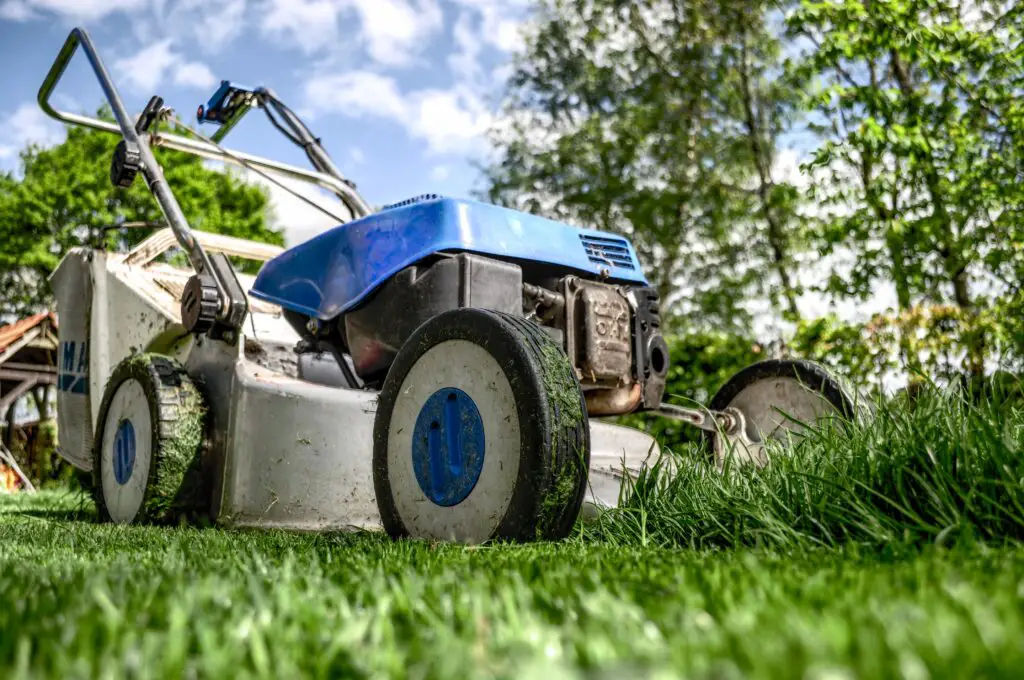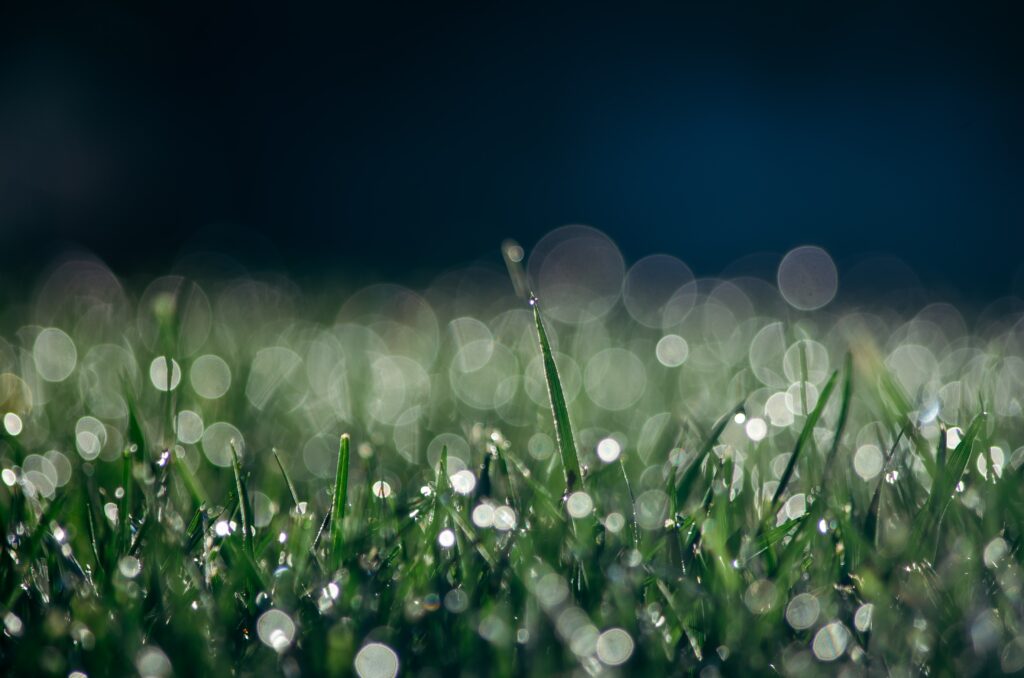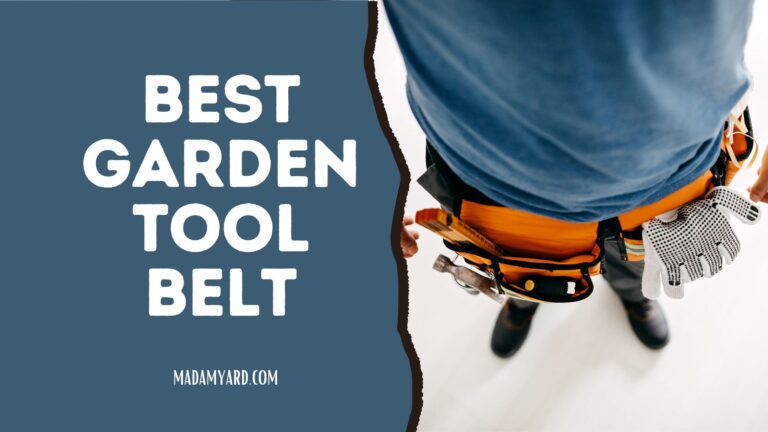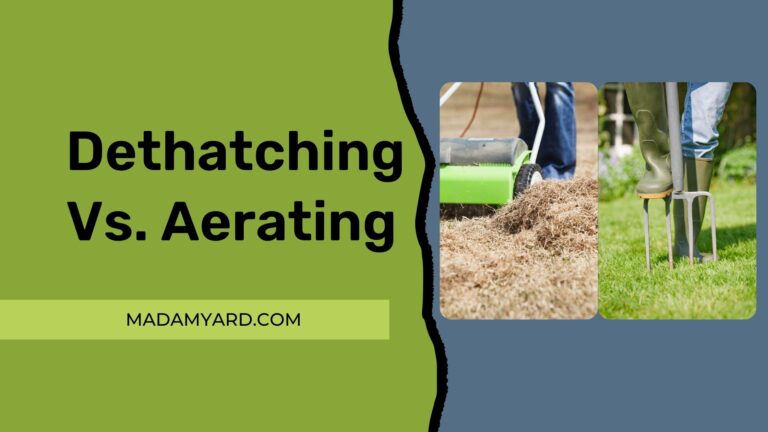Can You Mow In The Rain?
It is rainy outside, and you are thinking about how tall the grass in your yard has grown. You have planned to mow the grass on a day when it is supposed to rain.
So, what exactly do you do? Can you mow in the rain? What happens if it rains? Do you have the necessary tools? Are there any precautions that should be taken?
You have undoubtedly heard from your father or a neighbor that mowing wet grass is a poor idea, especially when it is raining!
Is that to say it is always a terrible idea? What if you do not want to mow the grass till it is dry? Can you mow in the rain? Will my lawnmower be OK in the rain? Is it going to harm your lawn?
Perhaps your calendar is tight, and you believe now is the ideal moment to cross the next item off your to-do list. It is a step-by-step explanation of mowing in the rain that will answer all your questions!
Why Should Not Wet Grass Be Cut?
Following a period of rain, the drops of water weigh down the grass blades, causing them to weigh down and making a straight cut exceedingly complex.
Individually, sliding on damp grass might result in injury. Another issue is that grass clippings tend to cluster together and inhibit an equal dispersion of the grass.
Mowing wet grass also aids in the faster spread of illnesses caused by germs that have accumulated on the surface of the grass blades as a result of rain.
It is a significant issue since bacteria thrive in freshly cut, moist grass. If the grass has grown excessively long due to heavy rain, the mower can be used to give it a fast cut.
Is It OK To Mow Wet Grass?

There are many reasons why grass should not be trimmed while wet. Here are a few of the factors you should think about before moving ahead:
Wet grass is sticky, and it sticks not only to your legs but also to your lawnmower, causing rust and grass to attach to the blades. The machinery may damage as a result of this.
Wet grass has more chlorophyll, which tends to stain your clothes rather than cause you to get wet. The stains are exceedingly difficult to remove, and numerous washing is required.
Unless you are dead set on having a pristine lawn, you can skip mowing your lawn while it is raining or the grass is wet. Chlorophyll may stain your home walls, as well as your clothing and skin.
The most complex aspect of mowing wet grass or rainy grass is the unevenness, and the grass becomes disorderly and appears to be running in every direction.
Before you have the correct appearance for your lawn, you will have to mow it several times.
You will also need to wait for a lot of sunlight to dry the grass in your lawn so you can give it one last trim and turn it into the beautiful lawn it should have been from the start.
Dangers Of Mowing Wet Grass
Putting an open mower out in the rain is hazardous to both the rider and the mower. Below are the reasons:-
1. Engine Overheating
Wet grass takes a toll on your vehicle engine. Most zero-turn mowers have the engine behind the rider seat, which exposes it to the elements.
Rain might potentially damage your engine, even if it is capable of becoming wet in general. When you mow over damp grass, your engine has to work extra hard to cut your lawn evenly.
2. Damage To The Engine
When the carburetor on your lawnmower becomes wet, it inhibits the machine from starting.
The carburetor will be unable to push air into the combustion chamber adequately. If rainfall does get inside the machine, it might be a disaster, leaving your engine inoperable.
Your spark plugs are prone to becoming wet because most elements of your mower are visible. Your spark plugs will cease operating after drenched, preventing your engine from starting.
It would be best if you dried it out very away to avoid any potential damage from sparks or electric shock, or you may have to replace it.
3. Stressed Mowing Spindles
Your mower spindle must be able to manage wet grass adhering to blades to mow wet, thick grass. It makes it more difficult for the spindle to work correctly, causing it to spin faster and wear out more quickly.
4. Mowing deck damage
Wet grass will not only ruin your spindles, but it will also damage your mowing deck since wet grass will adhere to the insides of your deck.
It obstructs airflow and slows down the mulching process. Wet grass sticks to the insides of your deck and your discharge route because it is sticky.
5. Unevenly cut grass
When the grass gets moist, it tends to sag. Taller grass blades are more likely to be missed or knocked over by your mower.
Your mower may be unable to cut the grass or may end up tearing bentgrass from the center rather than leaving a beautifully cut lawn if this occurs.
6. Clogging And Blocking Of Mower Parts
Wet grass is one of the issues since it becomes sticky and adheres to any surface, including your discharge route.
Sticky clippings become stuck beneath your mower, between your wheels, and within your spindles.
When these clippings clump together, they jam up portions of your mulching kit or bagger, causing your mower to stop working properly.
6. Turf Damage
You must also contend with soggy soil in addition to wet grass. When your grass is damp, it is more susceptible to harm.
Riding mowers are heavy, and mowing amid a damp lawn may cause your mower to dig into the soil, damaging your grass.
7. Messy Mowing
On top of the nasty muck sprayed about by your wheels, wet and bigger grass blades are flying everywhere.
It is not appealing to look at your grass after mowing in the rain. Not only will it be dirty while you mow, but cleaning will be a pain.
8. Ineffective Mulching
As previously said, grass becomes sticky and adheres to your mower blades and other surfaces.
It hampers good mulching by obstructing the airflow required for mulching. Larger grass clippings and clumps become lodged within your deck and between your blades due to this.
How To Properly Mow Your Wet Lawn?
You may have heard that mowing your lawn in the rain might harm your lawnmower as well as your grass.
While this is true, there are times when we are forced to mow damp grass. Here are some tips for mowing wet grass that will reduce the harm:
1. Avoid Mowing Extremely Wet Grass

Extremely damp grass mats or lie excessively low, making it complex to maintain a neat, groomed appearance.
You may also cause long-term ruts in the lawn if the soil is soaked past the roots of the grass and your mower wheels keep slipping sideways.
Furthermore, you risk spreading plant diseases as well as compacting the soil. As a result, be patient with soggy grass when it rains and, more importantly, allow the wettest parts to drain.
2. Use A Lawn Mower With Large Wheels
Rainy weather softens the ground, causing your lawnmower to sink and become stuck from time to time.
It would involve moving it back and forth, increasing the danger of trampling the vegetation with the machine and yourself.
Get a larger-wheeled mower or replace the little wheels on your current one to solve this problem. Your lawnmower will put less pressure on the roots and stems of your developing grass due to this.
3. Do Not Leave Heavy Clippings On The Lawn
Wet grass falls unevenly across the lawn, forming an irregular mulch for the grass to grow in.
When the cut grass is left to decay on the growing grass, it raises the possibility of dying certain grass areas and makes the lawn slippery and untidy.
While mulch mowing is more helpful and convenient, an overgrown lawn or damp grass necessitates bagging your grass clippings.
4. Side-Discharge Your Grass
Alternatively, instead of mulching or bagging, you can raise the mower deck and adjust the side discharge in preparation to mow.
Consequently, clippings and uneven grass may remain, but you may mow it again after a few days have passed.
The goal is to increase the frequency with which you trim your lawn to avoid it becoming shaggy and to reduce the risk of destroying particular areas of your lawn.
5. When Mowing, Always Use A Sharp Blade
Friction is essential for the blade to achieve a straight and clean finish when cutting grass.
Water will reduce the revolving blade’s grip, causing the grass to tear and become prone to plant diseases.
Take your time sharpening the cutter and increasing the rotation speed before going out to mow.
You may also take occasional breaks to get the blade sharpened so that nothing is left to chance. This technique will not only provide you with a well-kept lawn but will also protect your mower from unnecessary wear and tear.
Keep Your Lawn Mower Cleaned
The labor of cleaning the lawnmower will offset the pleasure of mowing the grass in the rain.
Cleaning will be quick and simple if you do it right after working on the field and before the clippings stick to the deck.
To wash the lumps away, tilt the mower and spray the polluted regions with water. If you’re going to utilize an electric mower, proceed with caution unless you want to see another nice-looking lawn.
Remember to pick up the clippings from the ground to avoid choking the living grass.
How Soon Can You Cut Your Grass After It Has Rained?
When it comes to cutting grass after rain, there are a few things to consider:
- Did it rain for a long time?
- How’s the state of your lawn?
- What is the current temperature?
If it’s only been a light rain or a shower, the good news is that you won’t have to wait long to trim your grass because it’ll only be wet on or near the surface, and it’s doubtful that a shower has converted your lawn into a swamp.
If you’ve had weeks of severe rain, it may take a few days of sunshine for your grass to dry out sufficiently to mow.
The state of your lawn is essential because if it is in good shape and has enough drainage, it will dry fast; however, if your grass has drainage difficulties and the water has formed puddles, it will take longer to dry.
It is tough to put precise timing on it because it is very dependent on your local climate.
If you live in a temperate area, it may take a whole day for the grass to dry enough to mow. However, if you live in a warm environment like Texas or Florida, the grass should be dry enough to mow within a couple of hours.
Will Mowing Wet Grass Ruin Lawn Mowers?
If you mow your lawn when the grass is wet, it will most likely not collapse completely right once, but it will certainly shorten the life of your mower over time.
Your troubles will most likely be caused by the way damp grass clippings cluster all around your mower blade.
Using a corded electric mower on wet grass is not a smart idea. If the cable has any difficulties, the water and electricity mix might harm your mower and you.
When your mower’s blade is coated in damp grass clippings, the engine has to work much harder, and this added stress shortens the life of your mower.
When your blade becomes caked in wet grass clippings, it will most likely rust, so if you mow your lawn when it’s wet, make sure you clean it afterward.
Conclusion on Can You Mow In The Rain
If it has rained recently, you should wait until the grass is dry enough to walk on without getting your shoes wet before cutting your grass. However, this is not always practicable, and you may have to trim your lawn when it is wet.
Frequently Asked Questions (FAQs)
Q. Is It Necessary For Me To Mow The Grass Before It Rains?
A. Although it is preferable to mow your lawn before it rains, it is occasionally required to do so if done correctly.
Q. What Is The Ideal Time To Mow The Lawn?
A. Mid-morning, or between 8 and 10 a.m., is the ideal time to mow.







